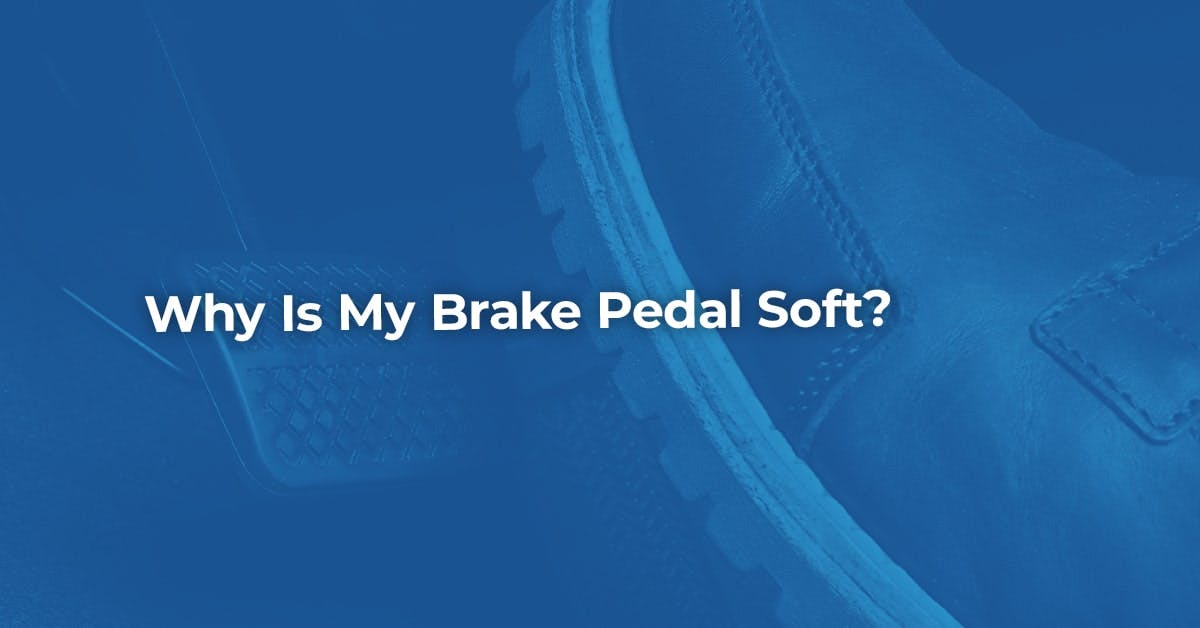If there is no resistance when you press down on your car’s brake pedal, then this could be a sign that there is a problem with your brakes.
It is not safe to drive with a soft brake pedal, so you will need to have the issue resolved as soon as possible.
A soft or spongy brake pedal can be caused by a number of factors, so it is important that you know what the problem is and how to fix it.
Page Contents
Air in the Brake Lines
If there is air in the brake lines, this means that your brakes won’t be as responsive as they should be.
When even a small amount of air enters the brake line, this can form a bubble - the air will compress itself when braking, meaning that the braking will be less effective.
As brake lines are made of steel tubing they can corrode over time, and develop holes which let brake fluid leak out.
This loss of brake fluid can cause a loss of hydraulic pressure, meaning the brake pedal will feel soft.
Air can enter the brake line if there is an issue with the brake fluid reservoir or with a brake caliper. Bleeding the brakes when replacing the brake fluid or after replacing the master cylinder can get rid of the air bubble.
Flushing the brake fluid can prevent the oil fluid from boiling, and fresh fluid can protect and preserve other brake components like the anti-lock braking system and the master cylinder.
Whilst you can technically bleed the brakes yourself, we would strongly advise that you trust a professional mechanic to do the job for you.
Book online today!
Faulty Master Cylinder
The master cylinder feeds brake fluid into the brake circuit, thereby converting the pressure on the brake pedal to hydraulic pressure.
If the master cylinder wears out, then this can cause the brake pedal to feel soft, and the braking system won’t be as effective.
You may notice an illuminated brake warning light on your dashboard if there is a problem with the master cylinder.
The master cylinder can experience an external brake fluid leak or an internal leak from a piston seal, both of which will cause a loss in hydraulic pressure to the brakes.
This loss in hydraulic pressure will cause the brake pedal to feel spongy or reach the floor.
The check engine light may shine if there is a fault with the master cylinder, and you will need to have your vehicle looked at by a professional mechanic so that they can determine the exact cause of the issue for you.
Rusted or Leaking Wheel Cylinders
A rusted, leaking or otherwise faulty wheel cylinder can have an impact on your brakes.
You may notice that braking takes longer, that there is a brake fluid leak, or that the rear drum brakes drag or lock up as a result of a fault with the wheel cylinder.
A wheel cylinder can fail if the rubber seals that make up the piston seal and dust boot wear away over time.
Wheel cylinders can also crack under pressure, but they can last between 3 and 5 years with proper maintenance.
It can be difficult to tell that there is a problem with a wheel cylinder, as it is located within the drum brake - this also means that replacing or fixing a bad wheel cylinder is not a straightforward process, and should only be attempted by a professional garage.
ABS Hydraulic Assembly Failure
Some modern cars have electronic emergency brakes which are built into the calipers.
If your car uses an anti-lock braking system (ABS), then any damage, internal failure or debris in the brake fluid can cause a valve to malfunction, which can cause the brake pedal to feel spongy.
An ABS modulator is made up of several moving parts, so a malfunction or internal leak could be causing the brake pedal to feel soft.
If there is an issue with the ABS system, then you should have your brakes serviced by a professional mechanic.
You should not drive your car if you experience any of these aforementioned issues, and should book with a mechanic as soon as possible to have the issue resolved.






